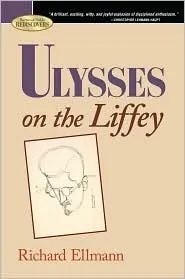Ulysses on the Liffey
By (author): "Richard Ellmann"
Publish Date:
1972
ISBN1435108493
ISBN139781435108493
AsinUlysses on the Liffey
Original titleUlysses on the Liffey
Originally published in 1972, half a century after the book that occasioned it, Ulysses on the Liffey upset the conventional wisdom of the time—that there was no new myth to be discovered in Joyce’s masterpiece. Here, just such a myth is proposed. Richard Ellmann makes clear, for the first time, how Joyce reconstituted the classical Odyssey with medieval elaborateness and modern meaning. Much of the evidence is internal, but he also makes the first use of some important indications by Joyce himself. Readers need no longer be baffled by how modern experience became anatomized, and mocked, and affirmed in the novel; or how Joyce created a new comic perspective. Ellmann also answers such unsolved questions as: Why was Molly Bloom born on Gibraltar? Why does Stephen hold forth about Shakespeare, and what is behind his theory of Hamlet? Why does Bloom order a Gorgonzola sandwich and a glass of burgundy for lunch? How can modern man overcome such pitfalls as Circe, the Sirens, and Scylla and Charybdis? The book also discloses how Ulysses accommodates and discomfits the literary and philosophical tradition. It demonstrates that the presences of Homer, of “Daunty, Gouty, and Shopkeeper,” of Blake, Shelley, and Yeats, of Aristotle, Bruno, Vico, and Hume form a shadowy congeries behind the incidents of Joyce’s novel.Praise for Ulysses on the Liffey“A brilliant, exciting, witty, and joyful explosion of disciplined enthusiasm.” —Christopher Lehmann-Haupt, The New York Times “[T]his new book is in the steps of Stephen: supple with speculative intelligence and sureintelligences, inquisitive about aesthetics, alert to correspondences, delighted by the rewards of words.” —Seamus Heaney, The Listener “Ellman has gone once more into Joyce’s maze and has emerged with a map of it…he is excellent on Joyce’s intellectual processes.” —V. S. Pritchett, New Statesman“A very considerable literary event.” —Anthony Burgess
